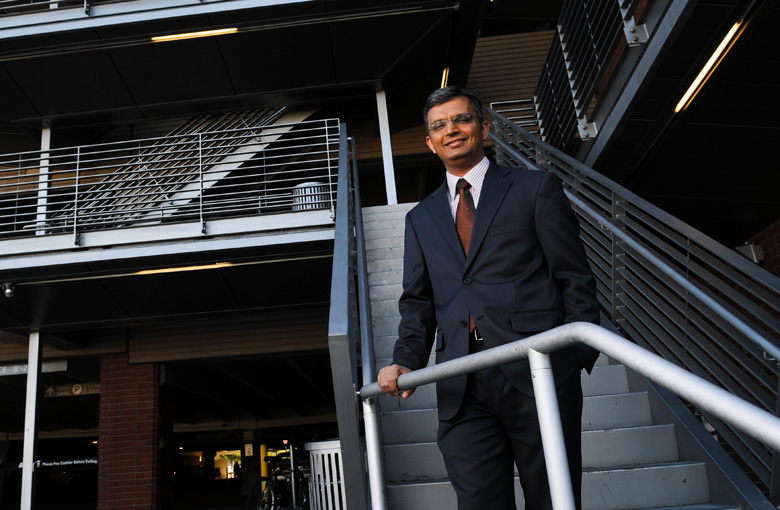
Information systems and the future
Raghu Santanam, chair of the Department of Information Systems provides his readers with insight into the developments that have taken place in the IS field since the 1990s. Santanam also gives his readers some information on the direction of the future of IS.
Raghu Santanam, Chairman
Department of Information Systems
If you had gone to sleep in the early ‘90s and woke up today, you would be astounded by the changes that have happened in IT and the software industry. Prior to the ‘90s we catered mainly to the computing needs of organizations, and our research and teaching focused on the relatively homogenous information processing needs of verticals within industries.
The advent of the Internet and social media has turned things upside down. Hardware and software producers are no longer focused on just organizations. In fact, there is a constant buzz about the cutting-edge products being introduced into consumer markets today. In essence, consumer needs are influencing technology offerings.
The resulting improvements are of course benefiting organizations as well. The focus on the “individual” is, however, not without difficulties and challenges. Researchers in the Department of Information Systems are therefore beginning to untangle the web of challenges of individual-oriented software and hardware platforms and markets. Professor Bin Gu’s research featured in this edition of KnowIT is an exemplar of the type of work being conducted in our discipline. Many of our faculty are engaged in similarly exciting topics, and we intend to showcase their works in the next few editions of KnowIT this year.
To give a better sense of the types of new challenges we are addressing, here is a sample list of differences between how one handles “organizational” vs. “individual” technology needs:
- Technologies focused on the individual deal with a multitude of design choices. Think of how many brands and feature sets you confront with your smartphones. We seldom had so many design variations on desktop PCs targeted at the corporate users.
- In markets focused on the individual, complex products can be assembled together from various players to meet the full diversity of consumer needs. Thus, platform flexibility and integration capabilities are essential to sustain competitive advantage. Auto manufacturers are beginning to get this imperative. For instance, Honda just announced that it will support both Apple CarPlay and Android Auto platforms in the latest Accord model.
- Today, information systems design takes on an entirely new meaning as compared to the traditional linear thinking of design based on “user requirements!” Today’s systems and software products focus on both emotional and rational appeals. To address large user bases, our designs need to be persuasive. That is, IS designers must seek to shape, reinforce and change consumer attitudes and behavior — not just “meet their requirements.”
I can list many more examples, but it is very clear that these differences make new demands on information systems faculty to change their research and teaching models. We need to train the next generation of technology managers to be comfortable working in this highly demanding and complex market — one that is focused as much on the individual as it is on the organizational computing needs.
Faculty in our department have made significant inroads into understanding the “new” IT and are leading our discipline in a new direction. We have also begun to incorporate the individual into our classes on information systems design and development. Our big data course offerings help students develop skills to make sense of the massive amounts of data consumers generate in their interactions with their devices. These analyses provide the insights needed to create the next generation of design. But we are only getting started! If you are just waking up from the ‘90s, you couldn’t have chosen a better time!
Latest news
- Spring training brings baseball fans from around the country and their dollars to Phoenix area
Spring training is drawing baseball fans from across the country to the Phoenix area, where 15…
- Low mortgage rates keep owners in their houses longer
ASU expert weighs in on how historically low mortgage rates are keeping homeowners in their…
- Revamped teaching method captures attention of students
How I-MAC 2.0 turns leadership theory into interactive, high-impact learning.